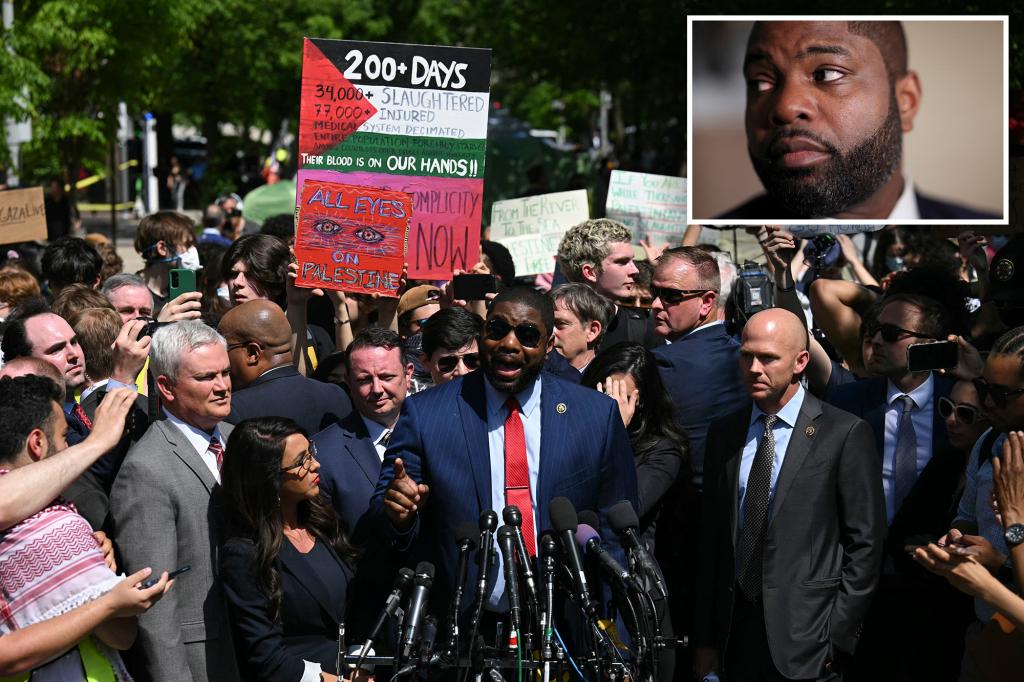An anti-Israel heckler confronted Rep. Byron Donalds while he visited an anti-Israel protest encampment at George Washington University. The heckler made racially charged remarks towards Donalds, accusing him of being paid by AIPAC and calling him a race-traitor. Despite the heckler’s comments, Donalds continued his visit and engaged with bystanders, even joking about the heckler’s age. Several bystanders defended Donalds, noting that the heckler was not a student at the university. Donalds and other Republican lawmakers faced boos from some students supporting the anti-Israel movement but persisted with their visit to the encampments.
During the visit, Donalds spoke with participants at the anti-Israel encampments, informing them that the university administration had labeled their presence as trespassing. He criticized Mayor Muriel Bowser for not addressing the issue and called for action to remove the encampment. George Washington University, located near the US Capitol, has been one of many campuses dealing with anti-Israel demonstrations. Last month, the university’s president requested assistance from the DC Metropolitan Police to remove the encampment, citing violations of university policies. However, the police rejected the request, allowing the encampment to continue for seven days.
House Oversight Committee Chairman James Comer announced plans to hold a hearing on the anti-Israel demonstrations at George Washington University on May 8. Comer expressed concerns over reports that the DC Metropolitan Police had refused to assist the university in removing the protestors. The demonstrations have been criticized as radical, antisemitic, and unlawful, leading to calls for action to address the situation. The upcoming hearing will address these concerns and explore potential solutions to prevent unauthorized encampments and protests on university campuses.
The response to the anti-Israel demonstrations at George Washington University has drawn attention from lawmakers and university officials, sparking a debate over free speech and campus protests. The incidents at the university highlight the challenges of balancing students’ right to protest with the need to maintain order and safety on campus. The confrontation between Rep. Byron Donalds and the anti-Israel heckler exemplifies the tensions surrounding political demonstrations and the need for civil discourse in public spaces. Both sides of the debate have valid concerns and viewpoints that deserve to be heard and respected, leading to calls for constructive dialogue and peaceful resolution of conflicts.
As the issue continues to unfold, lawmakers, university officials, and law enforcement agencies will need to collaborate on strategies to address protests, ensure public safety, and uphold the First Amendment rights of students and community members. By engaging in open discussions and seeking common ground, stakeholders can work towards finding solutions that respect diverse perspectives while maintaining a respectful and inclusive campus environment. The upcoming hearing and ongoing conversations surrounding the anti-Israel demonstrations at George Washington University will provide a platform for dialogue, debate, and potential policy changes to address the complex issues at hand. Ultimately, promoting understanding, tolerance, and empathy will be key to resolving conflicts and building a more inclusive and harmonious community for all.


